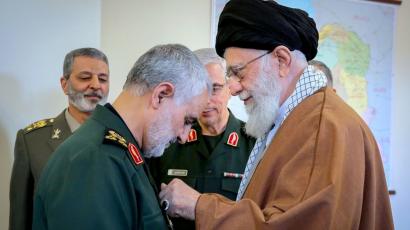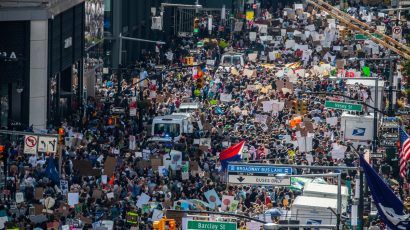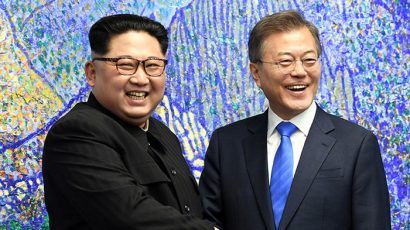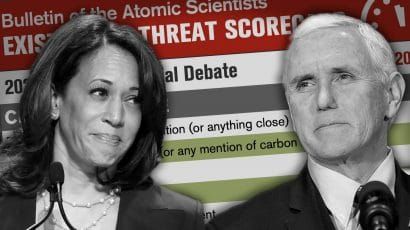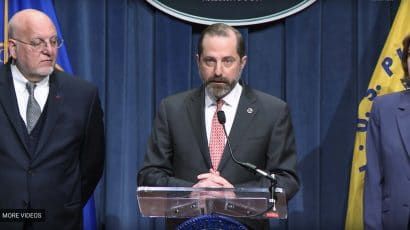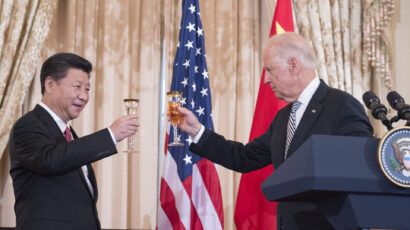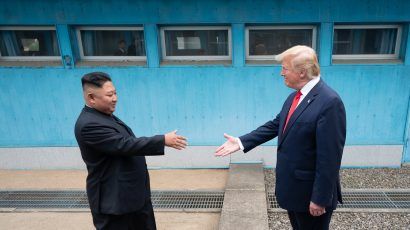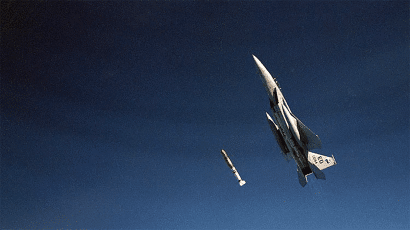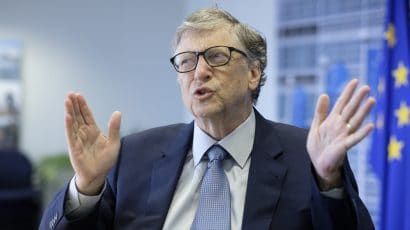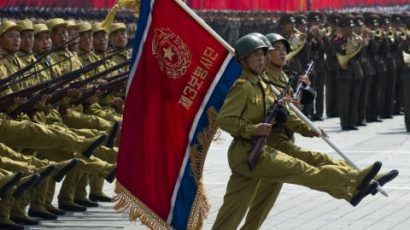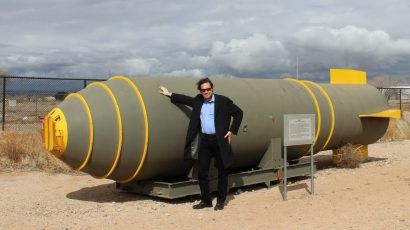Search results for trump
Best of 2019: Young experts on nuclear weapons, climate change, and disruptive technology
In 2019, young people had something to say about the lack of progress on stabilizing the climate, negotiating with North Korea, and preparing for the arrival of quantum computing.
The Panmunjom Declaration: What it wasn’t supposed to be
Why the West should not be disappointed by the denuke part of the declaration
Protect America’s border from climate change
While Congress and the White House debate the merits of a southern border wall, America’s coastline faces a much bigger threat.
What participants in a nuclear weapons ban treaty (do not) want
In-depth characterizations of the positions countries negotiating a nuclear weapons ban treaty have taken in regard to what the treaty ought to include.
Here, have this calm and civilized existential threat scorecard for tonight’s vice-presidential debate
There are no topics announced for the sole vice-presidential debate between Mike Pence and Kamala Harris. Here are some suggestions.
The coronavirus outbreak: 3 ways the United States was (and is) unprepared
Biosecurity expert Asha George thinks the US government hasn't funded public health efforts properly or fully implemented its biodefense strategy.
The US and China re-engage on arms control. What may come next
As President Joe Biden meets with China's Xi Jinping today in San Francisco, they must work to reduce tensions—and their nuclear arsenals.
Don’t be surprised when South Korea wants nuclear weapons
South Koreans increasingly worry that North Korea will never give up its nuclear arsenal and that the US nuclear umbrella could be lifted at any time. As a result, developing their own nuclear weapons has become thinkable, perhaps even inevitable.
A Gaza seaport: New ideas for conflict management
Building a seaport for Gaza would address the dire humanitarian and economic conditions there, as well as security concerns, and would bring Israel and Hamas one step closer to peace.
Anti-satellite weapons are creating space hazards. Here’s a way to limit the damage
Debris generated by anti-satellite weapons tests, like the one Russia conducted late last year, poses a significant threat to use of space, whether by militaries or private enterprises. There is a path toward eliminating the damage of the space weapons tests without limiting weapons technologies that can be used as anti-satellite weapons
2019 Doomsday Clock Statement
Overview Current Time FAQ Timeline Dashboard Multimedia Exhibit A new abnormal:It is still 2 minutes to midnight 2019 Doomsday Clock Statement Science and Security BoardBulletin of the Atomic Scientists Editor, John Mecklin From the President | Full Statement | Board Biographies | About the Bulletin | Clock Timeline PDF version | Print this page Statement from … Continued
Google funds climate deniers
Publicly, it calls for climate action. Privately, Google contributes to some of the most notorious climate-deniers in Washington. (Incidentally, the company removed “Don’t be evil” from its code of conduct in April 2018.)
Talk to North Korea to avert a nuclear disaster: an interview with Siegfried Hecker
An interview with Siegfried Hecker on Pyongyang’s nuclear capabilities and what to do about them.
Reconsidering the reversal: South Korea’s nuclear choices
In the 1970s, South Korea briefly considered developing its own nuclear weapons. The uncertainties facing South Korea today are eerily similar to those it confronted then.
Bill Gates’ bad bet on plutonium-fueled reactors
One of Bill Gates’ causes is to replace power plants fueled by coal and natural gas with climate-friendly alternatives. That has led the billionaire philanthropist and Microsoft co-founder to embrace nuclear power. But Gates has been persuaded to back a costly reactor design fueled by nuclear-weapon-usable plutonium and shown, through decades of experience, to be expensive, quick to break down, and difficult to repair.
Japan’s response to North Korea
Could there be a ‘Nixon goes to China’ moment for Japan?
North Korea in the news again: A time to reflect
This is a good time to take another look at some Bulletin stories that delve into the psychology behind what has been happening lately in North Korea. And discredit some common tropes.
Gathering storm: The industrial infrastructure catastrophe looming over America’s Gulf coast
A Bulletin/MIT analysis shows that almost 4,900 sites that handle toxic chemicals sit in flood-prone areas of Texas and Louisiana, posing a catastrophic environmental threat if a major hurricane hits the wrong place. The government's current plan to protect Gulf Coast infrastructure—the $29 billion Ike Dike—will not stand up to major storms, experts say.
Alex Wellerstein pulls back the curtain on nuclear secrecy
Alex Wellerstein, author of Restricted Data: The History of Nuclear Secrecy in the United States, talks with Bulletin associate editor Susan D’Agostino about nuclear espionage, security theater, and even an occasion in the 1950s when the Bulletin of the Atomic Scientists kept a nuclear secret.
